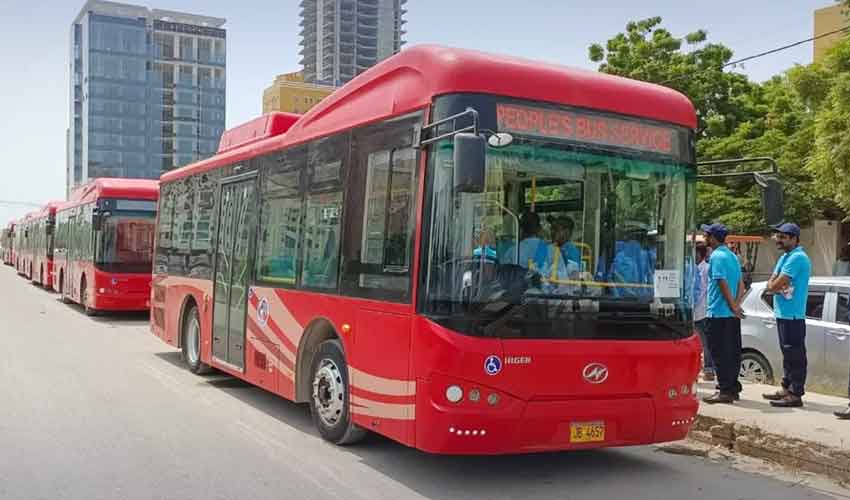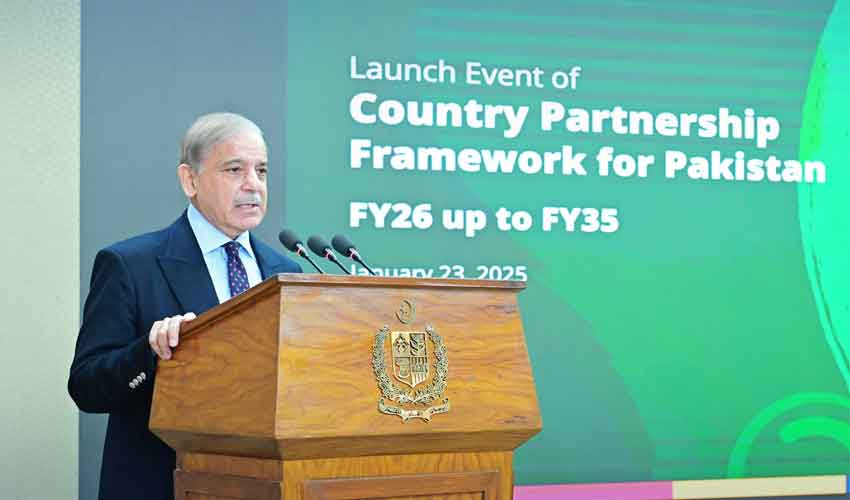According to a significant United Nations economic survey, which was made public on Thursday, the nation's economy will grow faster this year and next, with real GDP growth of 2% and 2.3%, respectively.
Additionally, it predicted that inflation would decline from 26% in 2024 to 12.2% in 2025.
The UN Economic and Social Commission for Asia and the Pacific (UN-ESCAP) published the '2024 Economic and Social Survey of Asia and the Pacific', which stated that a significant flood disrupted agricultural production and that political unrest negatively affected business and consumer sentiment.
It was mentioned that the economy had regained some macroeconomic stability during 2023 thanks to an agreement with the International Monetary Fund in mid-2023 and additional support from China, Saudi Arabia, and the United Arab Emirates.
According to the survey, the economy was going through fiscal adjustments, like cutting back on subsidies to the electricity industry, in an effort to restore stability. It also mentioned that tax gaps were moderate despite the low tax rates, though they might not be small if expressed as a percentage of current tax revenues as opposed to GDP.
According to the survey, the above indicated that improved tax administration and policies might not be sufficient to close the significant financing gaps for development in low-tax nations.
Also Read: Inflation resurges by around 1% in final days of Ramazan
The survey recommended that larger-scale increases in tax revenue would be necessary, along with general improvements in socioeconomic development and public governance.
It emphasized that the governments of developing Asia-Pacific nations were in dire need of long-term, reasonably priced funding because many of them were having to decide between paying off debt in an environment with high interest rates and making investments in their citizens' social protection, health, and educational opportunities.
The survey indicates that fresh viewpoints and methods may be able to resolve this enduring problem. The survey made several recommendations for such measures, including that donors should put recipient countries' needs for development financing ahead of their own political agendas, that multilateral development banks should strengthen their lending capabilities, including by bringing in new capital, and that credit rating agencies should take a long-term view and recognize that public investments made to realize shared development goals eventually boost fiscal credibility.
Stronger public revenue collection was also suggested by the survey as a way to lower borrowing costs and fiscal risks while also aiding in the "tax gap" closure.
The survey revealed that policies aimed at enhancing tax compliance among society have unrealized potential in addition to streamlining tax administration through digital means.
Also Read: Sugar price set to rise as mill owners seek 1m tons export permission
It further stated that in order to unlock significant domestic savings in the area and to boost the availability of long-term capital for investments in the Sustainable Development Goals (SDG), more developed capital markets were required.
Asian and Pacific developing nation governments are victims of an antiquated, unfair, and broken global financial system. According to the report, UN Secretary-General Antonio Guterres stated, "They face fiscal constraints, rising borrowing rates with shorter loan maturity and heavy debt burdens."
The value of national minimum wages, adjusted for inflation, has decreased in a number of countries recently, making it harder for lower-income groups to deal with scarce job opportunities and high food prices. As a result, he said, income inequality in the region is also likely to increase.
The myth that increased public debt levels invariably result in increased debt distress must be debunked. The survey discovered that while average economic growth in the developing Asia-Pacific region increased from 3.5% in 2022 to 4.8% in 2023, the recovery was centred in a small number of major nations.
The region's GDP was expected to grow by 4.4% in 2024 and 2025, which would be below the pre-pandemic trend but still fairly steady.
According to the survey, the region's economies are facing a number of challenges, including trade fragmentation, rising geopolitical tensions, and unpredictable trends in inflation and interest rates.
Also Read: Textile products export gains 3.2% growth on monthly basis
Governments would have to borrow money in order to meet their significant needs for financing sustainable development, even though a robust and equitable tax system and effective public spending should continue to serve as the cornerstone for funding vital public investments.
The percentage of external public debt owed to official creditors in Asia and the Pacific fell from 54% in 2010 to 35% in 2022. According to the survey, private creditors—bondholders in particular—have consequently emerged as the primary creditors for the nations in the area.
Macroeconomic fundamentals, including inflation, exchange rate volatility, fiscal position, sovereign credit rating, and capital market liquidity, were found to be significant determinants of government borrowing costs in a number of Asia-Pacific economies, according to a recent quantitative analysis by ESCAP.
According to the 2024 survey, increasing domestic savings and bolstering tax revenue collection were especially crucial.
According to the survey, the developing Asia-Pacific region has made significant strides in raising tax revenue. The average tax-to-GDP ratio rose from 13.7% in 2001 to 17.8% in 2011, but then moderated to 15.7% in 2021 due to the pandemic.



























